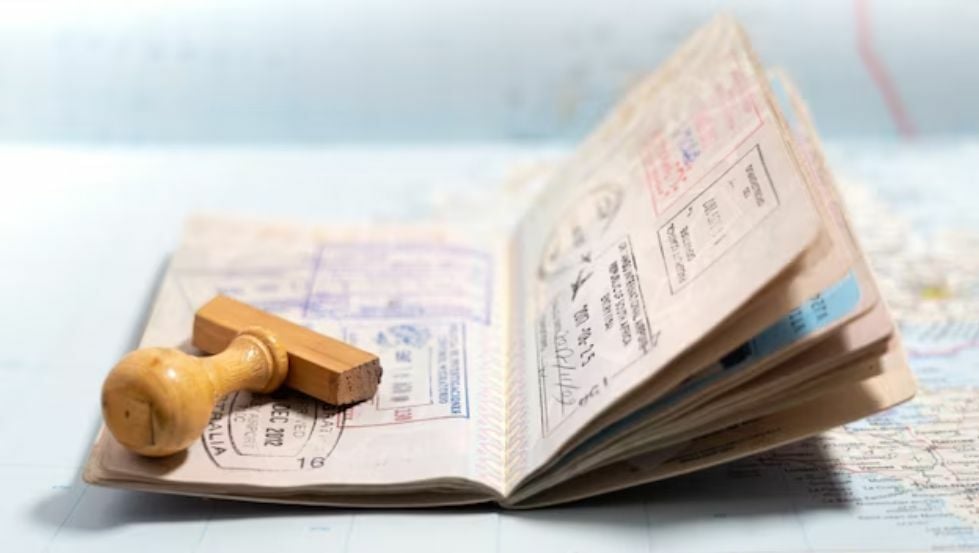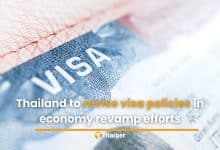Education visa in Thailand: Fulfilling your academic dreams

Education visa in Thailand offers a unique opportunity for international students and learners to immerse themselves in the country’s rich culture, language, and traditions while pursuing their educational goals. This type of visa enables foreigners to study at accredited Thai institutions, ranging from language courses and vocational training to higher education programs. With its diverse educational offerings and enchanting landscape, Thailand provides a captivating environment for personal growth and academic achievement.
What is an education visa?

An Education Visa in Thailand, also known as a Non-Immigrant ED visa, is a type of visa granted to foreign nationals who wish to pursue their education in accredited Thai institutions. This visa enables students to legally reside in Thailand for the duration of their study programs, which may include language courses, vocational training, university degrees, and internships.
The Education Visa is initially valid for 90 days and can be extended up to a year or more, based on the study program and compliance with visa requirements.
This visa category is provided to those attending educational establishments in Thailand approved by the Thai government, including their parents or legal guardians, excluding students of non-formal schools as per the laws governing private schools or other comparable private learning institutions.
It is important to note that Education visas do not apply to travellers planning to engage in short-term courses like the Thai language, Thai boxing, cooking, or diving while in Thailand.
A Thailand Student Visa has a maximum validity of 90 days for either single or multiple entries. Although your study program may last at least one year, the initial visa duration will still be 90 days. Before the visa expires, you can apply for an extension at the Thailand Immigration Department for a fee of 1,900 Thai Baht. Make sure to extend your visa every 90 days before the expiration of your current visa.
Who is eligible for an education visa?

To be eligible for a Thai Student Visa, you must:
1. Register at an educational institution in Thailand
2. Enroll in a minimum of three courses (although some schools may require four, so it’s essential to verify with your specific institution)
3. Attend a minimum of 15 hours of classes each week
All individuals who are not Thai citizens and wish to pursue their studies in Thailand must obtain a Thai Student Visa. This requirement applies even to those who are exempt from having a Thai Tourist Visa.
What documents do I need to obtain my education visa?
1. Basic education level (primary, elementary, secondary school)

- A passport or travel document with at least 6 months of remaining validity.
- A recent photograph of the applicant, taken within the last six months.
- A letter from the school confirming enrollment details, signed by an authorized person, along with a copy of the signer’s ID card or passport.
- The school’s registration certificate.
- A letter of approval from the relevant authority under the Ministry of Education.
2. University

- A passport or travel document with a minimum of 6 months of validity, accompanied by a recent photograph of the applicant taken within the last six months.
- A letter from the school confirming enrollment details, signed by an authorized individual, along with a copy of the signer’s ID card or passport.
- The university’s registration certificate.
- An academic certificate from the applicant’s previous level of education.
3. Internship

- A passport or travel document with at least 6 months of remaining validity.
- A recent photograph of the applicant, taken within the last six months.
- A letter confirming the applicant’s internship or participation in a program from the company or international organization.
- A letter from the applicant’s university or educational institute confirming the curricular internship.
Where do I get my education visa in Thailand?
To begin your application, you must first enrol in a full-time education course that meets all the visa requirements, and you should have paid at least 50% of the total course costs, or the entire course fee.
After enrolling, the school or institution will provide you with the necessary paperwork for your application. In some instances, the school may be able to send the documents directly to the Royal Thai Embassy or Consulate where you are applying.
To obtain an Education Visa for Thailand, you must apply at a Thai embassy or consulate in your home country or the country where you legally reside. It is essential to contact the embassy or consulate beforehand to gather information about the application process, required documents, fees, and processing times.
Follow the guidelines provided by the embassy or consulate, and submit your application accordingly. Once your visa is approved, it will be issued by the Thai embassy or consulate where you applied.
If you are already in Thailand on a different visa type, you can apply to change your visa category at the Thai Immigration Bureau office in Bangkok. Ensure you apply before your current visa expires. You may click here to learn more about changing types of visas.
What should I do after I get my education visa in Thailand?

Individuals possessing a Non-Immigrant ED Visa are required to report their current address to a Thai immigration office every 90 days. This can be accomplished by:
1. Visiting the Thai immigration office in person
2. Sending the information by mail
3. Using an agent with Power of Attorney
If you happen to be outside Thailand on the date your 90-day reporting is due, there is no need to report your status. Once you re-enter Thailand, the 90-day reporting cycle will restart from the day of your return.
If you don’t have a multiple-entry visa and plan to leave Thailand, you must get a re-entry permit to keep your visa valid. You can obtain this permit at a Thai Immigration Office or an international airport. The fee is 1,000 Baht for a single re-entry and 3,800 Baht for multiple re-entries.
Once you have obtained your Thai Student Visa, you can enter Thailand to pursue your studies for the visa’s entire duration. If you require a longer stay, you can request an extension at the Thai Immigration Department.
Can I work with an education visa in Thailand?

In general, working while on a student visa in Thailand is not permitted. However, there are some exceptions, such as internships or part-time work related to your field of study. To engage in these activities, you must obtain permission from the Thai Immigration Bureau and coordinate with your educational institution. It is crucial to understand and comply with the specific rules and regulations regarding work on a student visa to avoid legal complications.
An Education Visa in Thailand offers a unique opportunity to pursue your academic dreams in a country renowned for its rich culture, friendly community, and quality education. Whether you’re learning the Thai language, pursuing a degree, or engaging in vocational training, Thailand provides a supportive and enriching environment for international students. So, leap and embark on an unforgettable academic adventure in Thailand!
Latest Thailand News
Follow The Thaiger on Google News:


























